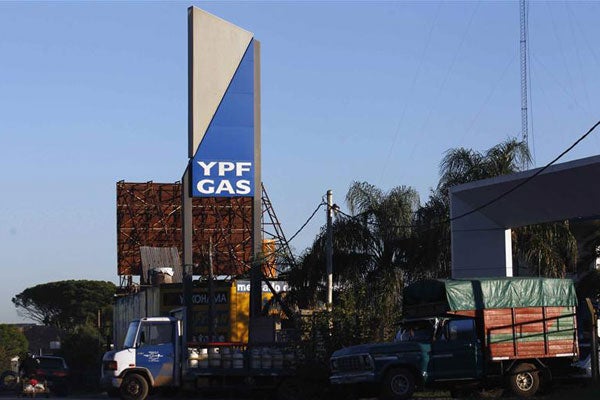Standing before a mural of Eva Peron Duarte (wife of Argentina’s legendary strongman Juan Domingo Peron and the “first lady of populism”) Argentina’s recently re-elected President Cristina Fernandez de Kirchner unveiled a plan to seize majority ownership in Argentina’s chief energy company YPF and return it to state control.
“We are the only country in [the Americas], and nearly the world, that doesn’t control its own natural resources,” she said. “This is the recuperation of the sovereignty of Argentina’s natural resources.”
The country would take over majority control of YPF, which currently has as its majority owner REPSOL, a Spanish energy firm. The chief complaint lodged against REPSOL is that it has made insufficient investments in energy development. Like her friend and patron Hugo Chavez—and like Evita—President Fernandez believes a nation’s resources, savings, and property exist to serve partisan ends.
Senior European officials warned that the nationalization would have a chilling effect on foreign investment in Argentina. For example, Catherine Ashton, the EU’s high representative for foreign affairs, was “alarmed to note that the president referred in her speech to investments in other sectors such as telecoms and banking.” Mexico’s President Felipe Calderon was even blunter: “No one in their right mind is going to invest in a country that expropriates investments.” Spanish conservative Prime Minister Mariano Rajoy, battling major domestic economic challenges, promised justifiable retaliation as Madrid struggles to preserve financial calm.
The move against REPSOL comes at a time when Argentina has pursued a similarly nationalistic and predatory strategy, applying diplomatic and economic pressures in an attempt to force Great Britain to abandon the Falkland Islands. In addition to long-standing Argentine nationalism, one of the underlying factors motivating the current aggressiveness has been oil exploration around the Falklands.
The impact of the move remains uncertain. Some commentators recognize the capacity of energy-possessing nations to nationalize, break contracts, or punitively tax with relative impunity given heavy demand and vast amounts of global capital seeking a home. The Economist observed that President Fernandez “had already ruined Argentina’s reputation as a safe place to do business long before the nationalization of YPF.” The Wall Street Journal termed the action “thuggish” and called for Argentina’s expulsion from the G-20.
Like its neutrality stance on the Falklands, (Malvinas or Maldives—oh, whatever!) the Obama Administration’s first inclination is to deny that a problem exists. Intoned the State Department’s press spokesperson on April 17: “The importance that we subscribe to—or ascribe to diversity of energy resources. We believe that’s the best route to go.”
While the Administration tangos with another thorny Argentine issue, of one thing there is relative certainty: When it comes to running economies, both Fernandez de Kirchner and Obama share a belief in their ability to defy economic laws of gravity.































6 Replies to “Argentina, and Obama, Make Us Want to Cry”